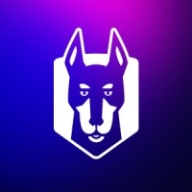

Stackify and Snyk compete in the software development tools category. Stackify has an upper hand in providing application performance monitoring with strong support and flexible pricing, whereas Snyk leads in security vulnerability management with advanced features for enhanced security solutions.
Features: Stackify integrates application performance monitoring, error tracking, and log management. It offers customizable dashboards that enhance code reviews and supports .NET and Azure environments. Snyk provides vulnerability scanning, exploit maturity assessment, and detailed remediation guidance. It supports multiple programming languages and integrates with CI/CD pipelines efficiently.
Room for Improvement: Stackify could enhance scalability and real-time data processing capabilities. Pricing transparency and feature accessibility could be improved for better user adoption. Snyk could benefit from expanding its vulnerability database further and simplifying initial configurations. Increasing support documentation clarity and improving integration options for on-prem setups would be beneficial.
Ease of Deployment and Customer Service: Stackify offers an easy setup with a responsive customer support team, making integration across platforms efficient. Snyk focuses on seamless security integration but involves more initial configuration. Snyk's strength lies in expert security support, while Stackify is simpler to deploy.
Pricing and ROI: Stackify is budget-friendly, with offerings that ensure a solid ROI through effective performance tools. Snyk's pricing, though higher, is justified by its comprehensive security features, offering significant returns via risk reduction and compliance assurance.
| Product | Market Share (%) |
|---|---|
| Snyk | 0.3% |
| Stackify | 0.4% |
| Other | 99.3% |


| Company Size | Count |
|---|---|
| Small Business | 20 |
| Midsize Enterprise | 9 |
| Large Enterprise | 21 |
| Company Size | Count |
|---|---|
| Small Business | 3 |
| Midsize Enterprise | 2 |
| Large Enterprise | 2 |
Snyk excels in integrating security within the development lifecycle, providing teams with an AI Trust Platform that combines speed with security efficiency, ensuring robust AI application development.
Snyk empowers developers with AI-ready engines offering broad coverage, accuracy, and speed essential for modern development. With AI-powered visibility and security, Snyk allows proactive threat prevention and swift threat remediation. The platform supports shifts toward LLM engineering and AI code analysis, enhancing security and development productivity. Snyk collaborates with GenAI coding assistants for improved productivity and AI application threat management. Platform extensibility supports evolving standards with API access and native integrations, ensuring comprehensive and seamless security embedding in development tools.
What are Snyk's standout features?Industries leverage Snyk for security in CI/CD pipelines by automating checks for dependency vulnerabilities and managing open-source licenses. Its Docker and Kubernetes scanning capabilities enhance container security, supporting a proactive security approach. Integrations with platforms like GitHub and Azure DevOps optimize implementation across diverse software environments.
Stackify is an application performance management (APM) solution that combines application performance monitoring with logs, errors, and reporting. It is a SaaS solution that is developer-focused. Users can quickly scan, identify, and repair issues with applications. Stackify APM offers valuable tools, such as Prefix and Retrace, which help to make it a comprehensive and valuable APM solution. Stackify is now part of the Netreo family of IT Infrastructure Management (ITIM), which is considered one of the fastest-growing IT organizations in the marketplace today.
Stackify Prefix
Stackify Prefix helps developers write better code, faster. The tool examines, tests, and approves code as it is being written. Almost every new application is code-perfect, negating the need for exhausting troubleshooting and frustrating time-consuming code review.
Prefix is able to discover poor-performing SQL queries, ORM queries, potential bottlenecks, and concealed exceptions prior to moving the application into production.
Prefix offers Summary Dashboards, intuitive suggestions, integrated logs, and distributed tracing. Distributed tracing expands visibility to cloud-native applications, microservices, and containers and can also provide additional transparency to cache services, web services, third-party services, and more. Users are able to easily move from logs to traces and back.
This valuable tool ensures developers are able to consistently release the best code possible in the least amount of time, while improving performance, productivity, and profitability.
Prefix is a very robust and easy-to-use tool. It can be used seamlessly with Linux, macOS, and Windows. Prefix integrates well with numerous languages, such as Java, Python, Ruby, PHP, Node.js, .Net, and .Net Core.
Stackify Retrace
Stackify Retrace is a user-friendly, trusted APM solution used in more than fifty countries worldwide. Users know that Retrace is able to ensure they can complete quicker, more efficient application development and consistently enhance overall application performance by suggesting important intuitive suggestions users need.
This solution is beneficial to both developers (Dev) and operations (Ops) personnel to learn to improve code and immediately finetune issues by:
Retrace Real User Monitoring (RUM) uses both front-end and back-end monitoring to give users a complete picture of what is going on with the applications. This intuitive dashboard displays performance with a complete breakdown of resource usage and integrates the server-side and client traces into one engaging, user-friendly, extensive view.
Retrace is an out-of-the-box solution that works seamlessly with Java stacks, PHP, Node.js, Ruby, Python, .Net, and .Net Core. It is also compatible with many of today’s popular frameworks, such as AWS, Azure, Elasticsearch, MongoDB, MySQL, Oracle, PostgreSQL, Redis, and SQL Server. Additionally, Retrace will work effectively with many cloud providers, containers, and languages, and offers excellent and easy integration with today's favorite tools such as Jira, Slack, Jenkins, and more.
We monitor all Application Performance Monitoring (APM) and Observability reviews to prevent fraudulent reviews and keep review quality high. We do not post reviews by company employees or direct competitors. We validate each review for authenticity via cross-reference with LinkedIn, and personal follow-up with the reviewer when necessary.